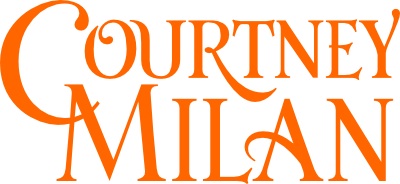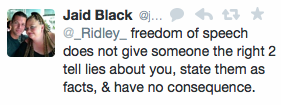Hi everyone! The enhanced editions of my first five books–Unveiled, Unclaimed, This Wicked Gift, Proof by Seduction, and Trial by Desire, are now available–and they’re only 99 cents each through July 25th.

If you want to know what an enhanced edition is, I explain it better here. If you have already purchased these books, and just want the additional content, you do NOT have to rebuy the book just to get it–I don’t believe in making people pay twice, particularly when they’ve been nice enough to buy the book in the first place. The enhanced content is available for free on my website here.
That is, I think, all that you need to know as a reader: you can get my earliest books, with more content, for 99 cents!
Here are buy links, for those who are so inclined:
Amazon:Â http://smarturl.it/enhanced-amazon
Barnes and Noble:Â http://smarturl.it/enhanced-bn
Google:Â http://smarturl.it/enhanced-google
Kobo:Â http://smarturl.it/enhanced-kobo
iBooks: Unveiled | Unclaimed | This Wicked Gift | Proof by Seduction | Trial by Desire
—
Authors, have asked me a lot more questions over the last few weeks, and so here are some answers to those questions.
Q. Why are you releasing enhanced editions?
A. Because I can. I know that sounds a little bit ridiculous, but let me put it to you this way–if you had a contract with a publisher for print-only releases, and the contract specifically stated that you reserved digital rights, would you put that book up as a digital edition? Of course you would.
That’s what my contract looks like with regards to enhanced editions. They specifically reserve the right to make enhanced ebooks to me. I had that right, and so I am now exercising it.
Releasing enhanced editions gives me control over pricing, covers, branding, promotion, and back matter. It also makes me more money.
Q. Are you the first person to release enhanced editions?
A. Nope! Publishers have been putting out enhanced editions for years. And authors have self-published enhanced editions before, too. I’m aware of two other authors. Christina Dodd has put out enhanced editions of her Lost Hearts series, with deleted scenes and author commentary, and Cherry Adair has put out enhanced editions of a number of her books–with more material in them than I can possibly list here.
I’m pretty sure that Cherry Adair, like me, is putting out enhanced editions while her publisher still holds an exclusive license to the underlying unenhanced text.
Q. Specifically what in your contract allows you to do this? Can I do this, too?
A. There are two parts to my contracts that allow me to do this. The first is the following statement in the Grant of Rights section of my contract:
(d)  electronic use of the non-dramatic unenhanced verbatim text of the Work, excluding video use (whether in a now known form or hereafter discovered) … Notwithstanding anything to the contrary in this Agreement, electronic rights shall be limited to the display of the text in the Work and shall not include any moving images, sound or any interactive or multimedia elements.
Incidentally, give my agent, Kristin Nelson, a hand for drafting an extremely clear statement. If she’d just left it as “unenhanced verbatim text” or even limited it to “multimedia elements” we might have had to argue about what “multimedia” and “enhanced” meant. As it is, the line about “sound” gave me a really, really clear out: As long as I included audio, I was outside the rights I had granted to my publisher.
The second is something that is not in my contracts, and that is a noncompete provision of any kind.
I don’t know if you can do this. You’ll have to look at your contract. I’ve mentioned here the two things you’ll need to look at–the grant of rights section and…uh, the rest of the contract. In the grant of rights section, you need to look and see if you are only granting rights to the “unenhanced” text, or if you reserve “multimedia” rights or something along those lines. There are probably a thousand different ways to word the reservation, and so there’s no magic language I can tell you to look for.
There are also a lot of authors out there who don’t have an enhanced reservation at all. I’m pretty sure that Harlequin series boilerplate, for instance, will not allow this.
Whether you can do this will depend entirely on what you and/or your agent negotiated.
Q. Will you look at my contract and tell me if I can do this?
A. No, sorry. That’s a job for a lawyer, and I’m not licensed to practice anywhere at the moment, and don’t want to get you in trouble.
Q. Are these self-published?
A. It depends on what you mean by “self-published.” If you look at the publisher listed on the vendor websites, it will say “Entangled Edge/Macmillan.” That’s because I have a distribution arrangement with Entangled Publishing, who in turn has a distribution arrangement with Macmillan.
Why do I have a distribution arrangement with Entangled? I wanted to make sure I was falling under the safe-harbor laid out in my contract–meaning I had to include audio. Self-publishers cannot publish books to Amazon or Barnes and Noble with audio in them, so I have a distribution arrangement with Entangled to send them out.
I produced the files and covers entirely on my own, and granted Entangled a nonexclusive license to distribute them. [ETA: As a sidenote, I asked Kristin to negotiate that agreement as well, and she made sure we stuck to the points we needed to most protect me.]
I could have gone through someone like vook.com to distribute–but I’m getting a much better deal this way.
Are these self-published? I bore all the costs and work of producing the files, so in that sense, yes. Are these distributed through normal self-published channels? No. They are not.
Q. Are you worried that your publisher is going to sue you?
A. Not really. We’ve kept them in the loop throughout, and they’ve had the chance to raise objections before now, which they have not done. My contract is really clear on this point, so they don’t have grounds to sue me. And they’re not unreasonable.
That being said, my budget for this project included a phantom legal fund. Just because something’s extremely unlikely doesn’t mean that it is impossible.
Q. Are you worried that someone is going to get sued over enhanced ebooks?
A. Yes, which is one reason I don’t want to look at anyone’s contract (I mean, aside from the fact that the unlicensed practice of law is generally frowned upon). There are potentially tens of thousands of books out there that have an enhanced ebook reservation in them.
I think that there’s a huge opportunity here for authors, but I also think there is a huge risk involved, and I want to emphasize the risk in addition to the opportunity. I think there are very few authors who are positioned as well as I am: on the one hand, my contract is from my limited experience unusually clear on this point; on the other hand, I have legal resources available to me that are, to say the least, uncommon.
Q. Are you worried that your publisher is going to be unhappy about this?
A. Not particularly. But if I were still publishing with them, and wanted to continue publishing with them, this would not have been a particularly prudent course of action.
Q. Where did you get the idea for this?
A. From Joe Konrath, at the end of this post. And yes, I’ve known that I could (and likely would) make enhanced editions since before I self-published my first work. I’ve been planning these ever since April of 2011.
Any other questions? You can ask me in the comments. (I may be in and out quite a bit today, but will get to comments as I can.)










